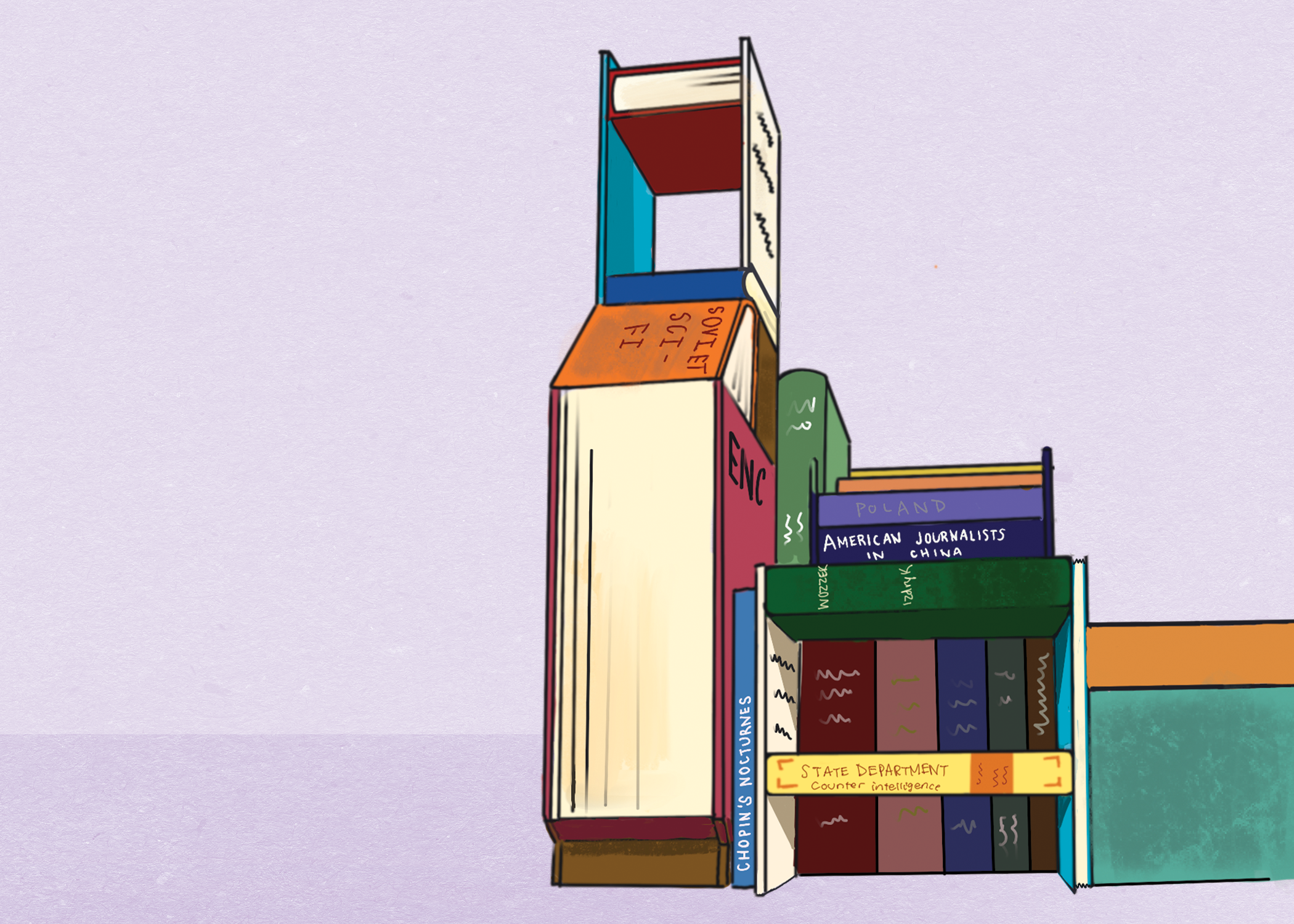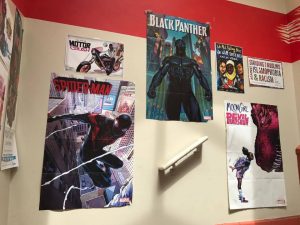There was something undeniably sad about walking into Lau in the middle of July. While the perpetually AC-blasted floors provided much-needed relief from the heat, a silent Lau 2 filled with empty tables reminded me that there were far more exciting things to do than visit my university library. But I was glad—excited, even—to make the trip because I was on a mission. Weaving between shelves of East Asian history, I was there to get books that were too niche for my local library.
Over the past three years, the number of books I’ve checked out from Lau has probably topped one hundred. Early in my freshman year, I shed all knowledge of the Dewey Decimal System and embraced the Library of Congress Classification to navigate the Lau stacks.
Checking out books from Lau (sometimes a dozen at a time) has been such a core part of my routine that I’d forgotten that it is a privilege I only have while enrolled at Georgetown. After I graduate this spring, finding a truly comparable resource to fill the gap will be difficult.
If I want to pick up a copy of a new novel or popular nonfiction book, I can easily go to a public library and pluck it off the shelves. But the most interesting books I’ve thumbed through over the past three years are the ones I can’t find back home. They’re the niche nonfiction books on State Department leaks or American journalists in China, the research primers that directed my class papers, and the satirical Polish microfictions and Ukrainian novels that I read in my free time.
There is no better way to understand the sheer range of texts Lau has than to delve into the stacks yourself. Want to read about world religions? Go to Lau 1. World history? That’s on Lau 2. Interested in browsing catalogs of declassified U.S. government documents? You can find those on Lau 5. Want to play one of Chopin’s nocturnes or cook Egyptian cuisine? Visit Lau 4’s shelves of piano music or pick up a cookbook on Lau 5.
Beyond the Lau stacks, the broader Washington Research Library Consortium gives us access to the collections of eight other D.C. area universities. Altogether, we have over 22 million items. If Georgetown doesn’t have the book you want, George Washington University, Howard University, or another school in the area may have it among its own vast collection.
With hundreds of classes offered each semester and events held weekly on campus, opportunities to learn during your four years on the Hilltop are endless. But amid this abundance, don’t discount your university library. Not only do we have access to our professors during their classes and office hours, we can also go to Lau and read the texts written by the experts who taught them. Academic texts can be expensive—just look at your receipt from this semester’s textbooks order—but as a student, you can access them for free through Lau.
Perhaps it is silly for me to mourn the loss I will experience upon graduating. This is, after all, a university library that I will lose access to: a resource that is intended to support the education of current students. Access to the libraries comes as a part of the tuition I pay to attend Georgetown. But what if I want to be, as I am sure I will be pressed to be at my graduation ceremony, a lifelong learner?
There is no easy substitute for access to such an incredibly broad range of niche texts. The books I read after I graduate will depend on the salary that will fund my bookstore trips, or, if I don’t want to pay, the local libraries that let me borrow texts for free. And yet those repositories may be incomplete. Is there enough demand in my home county for a book of Soviet science fiction? Probably not.
This all goes without even acknowledging the plethora of online resources also available to us at Georgetown. Peer-reviewed papers and academic journals, typically restricted behind paywalls, are just a search away from us via JSTOR or ProQuest. But even as I complain about losing Lau privileges this May, I have to acknowledge that most people never even get to step foot inside places like Lau. Georgetown students are fortunate to have access during our four years on the Hilltop, but most Americans are not currently enrolled in college and cannot benefit from these same resources.
The fruits of research and academia, already under attack and facing existential funding cuts, should not solely be available to those who can afford to spend thousands on education. As expert knowledge is sidelined and misinformation is spread by people in positions of power, it’s more crucial than ever that access to knowledge remains accessible to all. And yet, many research journals are paywalled and extensive research collections like Lau aren’t accessible to the general public.
While Lau may be a ubiquitous sight for Georgetown students, our access to its contents has an expiration date.
The next time you scan your GoCard at Lau’s entrance, think about how lucky you are to have access to this incredible repository of knowledge. Before sitting down to study, take a detour into the stacks. Expand your education beyond the classroom to the millions of books your tuition also funds. Maybe you’ll see me there, walking out with a stack of books in my arms and trying to see how many more of its millions of books I can read before I graduate.







